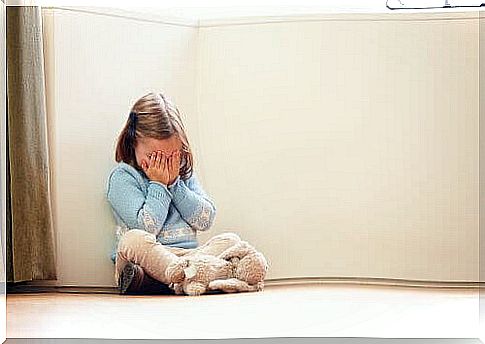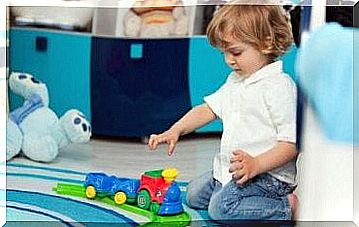Feelings Of Guilt In Children – Being Parents

Although childhood seems like a light and simple time, the inner world of children is richer and more complex than we think. When we are little, we begin to develop beliefs and emotions that will accompany us throughout our lives. The feeling of guilt is not excluded.
What is the feeling of guilt?
The feeling of guilt in children could be defined as the emotional turmoil that arises after an action deemed insufficient or that has harmed others. It is precisely because of the nobility of children’s hearts that guilt has such a special impact on them.
It is a powerful, harmful and crippling emotion. If we do not learn to deal with it properly during our childhood, it can condition our personality and our reactions throughout life.
Where does the feeling of guilt come from?
The feeling of guilt is not innate. That is to say, we were not born with this feeling. However, it is a social feeling that we learn and acquire through our experiences.

Much of our vision and relationship to guilt depends on the education received. Therefore, it often comes from our family members and teachers. From a very young age, we have observed the adults in our life judging and blaming themselves and others. It is for this reason that we subconsciously imitate the pattern of behavior.
It is also very common for adults to use guilt as a teaching method to make children understand the consequences of their actions. But it is very important to practice a conscious and consistent discipline, and not only based on the uncontrolled emotional reactions of the adult himself.
Guilt or responsibility?
As humans, we all make mistakes in life. Sometimes we take actions that we sooner or later recognize as incorrect. This is when the parenting style we were brought up with kicks in, expressing certain feelings in other circumstances.
Children educated in guilt
A child educated in guilt is used to seeing inflexible judgments in his environment. If we continually reprimand what the child does wrong, we will damage their self-esteem. These types of accusations do not lead to reflection and action, but to stagnation.
The child who goes through these experiences will remain anchored in this emotional discomfort because he has not received the necessary resources to manage it otherwise. This type of reaction can eventually condition your life, causing insecurity, fear and self-discrimination.

It will also affect their interpersonal skills, since a child raised in guilt is more vulnerable to this feeling. He will be more likely to be easily manipulated or to become a manipulator himself.
Children educated to become responsible
While it is necessary to teach children the difference between right and wrong, and to set standards and limits for them, we must do so through accountability.
The main difference is that, under this approach, the natural consequences of the acts are highlighted, and not the penalties imposed. We have to encourage the moral autonomy of our children, making them act according to values and not of obligation or fear, of the feeling of guilt in children.
We must help them to reflect on their actions and the consequences of constructive methods, always emphasizing the passage to action. Once the fault is recognized, the main thing is to find a way to correct it and learn from the mistakes. Once done, the emotion should go away. If the emotion remains ingrained, it will only cause unnecessary suffering.
How to raise responsible children not filled with guilt?
- Take responsibility for your own emotions. One of the behaviors that hurt children the most is when their parents make them feel guilty about their own anger or their inability to deal with their emotions. Remember that you are responsible for managing your emotions. So do not delegate this burden to your children.
- Teach your child to define guilt. Help him think about his share of responsibility in this matter and what is not. Guide him in such a way as to avoid blame. Be careful not to ask too much of her either.
- Encourage him to express his feelings and emotions. Being able to express and share the feeling of guilt helps us to come out of isolation and to manage it better.
- Always stress the importance of taking action. Reflect on mistakes to correct them or, failing that, ask for forgiveness. Never remain paralyzed in discomfort.









